Learn the green colour

Activities done in the school years 2022/2023 and 2023/2024.
HDC LEUVEN:
- On the 7th of March 2023 the class involved in the project (4MT) went on a tour of the city of Leuven guided by their geography teacher.
The tour focused on what the citizens, shops and townhall are doing to make the city greener, cleaner, and more sustainable.
- On the 18th of April 2023 the students did a workshop at the Miniemeninstituut on water filtration and recycling using a self made water filtration system. The students first cleaned a caravan and some armchairs in the courtyard with water and a biodegradable soap. Then they filtered the water used for cleaning with a filtration system made by students and teachers at the Minimen Institute .We saw with our own eyes that the filtered water was clean, and the next day we did chemical experiments to analyze the purity of the water. We analyzed the amount of oxygen, calcium, phosphates and ph in the water. The water turned out to be sufficiently clean (even drinkable after boiling).
- On the 19th of April 2023 the students attended the lecture 'So get informed' on global warming and Antarctica at the library of Leuven.
- On the 20th of April 2023 they visited the European Parliament and met a Green Deal speaker. Language used was English.
- On the 21st of April 2023, 37 students of HDC went to watch the documentary Duty of Care at the library of Leuven. The documentary is about Roger Cox who sued the Dutch government in 2015 in a first-ever climate case. Despite all predictions that it could never succeed, he won the case. Now Cox is gearing up for a new David versus Goliath story: he wants to sue Shell, one of the world's most polluting gas and oil concerns.
After the documentary there was a follow-up meeting with four climate ambassadors (2 from Belgium and 2 from Portugal).
After the meeting we went all to a warm alarm point in the city centre to write and send letters to the Minister of the Environment to support the climate cause.
- On the 22nd of March 2023 the students recorded a video in French for the pupils in Amalfi who study French (4MT introduces themselves & their expectations about cooperation).
- On the 18th of April 2023 the students presented their own logo for our project in French and explained their design.
- On the 21st of April 2023 the students interviewed in French some people in Brussels on the theme "ecology & environment".
- On the 29th of May 2023the students of 4MT calculated their individual ecological footprint.
- On the 30th of May 2023 some of the students researched material to prepare a CLIL lesson on water (use of water in Europe, how to save water, importance of water filtration). Some others calculated the ecological footprint of the school.
- On the 1st of June 2023 the students translated material from Dutch into English to organize a workshop on climate change.
- On the 7th of June 2023 students sent a form via email to our partners to ask our Italian and Greek partners to calculate the ecological footprint of their school.
-On the 17th of October 2023 the students took part in a workshop organized by Hello Drama. The Climate Mole (Find The Saboteurs and Save The Planet) workshop focused on Climate Change / Teamwork / English Practice / Problem-solving.
-On the 24th of October 2023 the students participated in a e-waste escape room at the city hall of Leuven. The main objectives were to make students reflect on smartphone production and consumption, understand sustainability issues, and encourage more eco-friendly smartphone usage. Subobjectives involved learning about smartphone materials, mining impacts, and sustainability concepts. Cross-curricular outcomes included promoting empathy, critical thinking, open-mindedness, respect, and care for the future.
2EPAL school of Rhodes:
The school conducted two workshops with participating students:
- one on solar energy cooking
- one on sustainability terminology demonstrated with an interactive tag cloud
The first workshop focused on solar energy cooking and usage. The goal was to introduce students to the concept of using renewable energy sources, such as solar energy, to cook food and reduce the carbon footprint. The workshop included a demonstration of a solar cooker and how it works. Students learned how to make solar-cooked meals and the benefits of using solar energy for cooking. The workshop also covered the advantages of solar energy over other non-renewable energy sources and the importance of sustainable energy practices.
The second workshop aimed to familiarize students with the terminologies and jargon used in sustainability. The goal was to improve their understanding of key sustainability concepts, such as renewable energy, greenhouse gases, carbon footprint, and sustainable development. The workshop included interactive activities, group discussions, and presentations. Students learned about the importance of using sustainable practices in their daily lives and how they can contribute to environmental conservation and protection.
The positive results of these workshops were remarkable. The solar energy cooking workshop introduced students to an alternative cooking method that uses renewable energy, reducing their reliance on non-renewable energy sources. It also encouraged students to think critically about the environmental impact of their actions and how they can contribute to sustainability. The workshop helped students appreciate the importance of using renewable energy and the potential benefits it offers for a sustainable future. The sustainability terminology workshop was also a success. Students gained a better understanding of the terms used in sustainability and their practical applications. This knowledge empowered them to make informed decisions about their lifestyle choices and contribute to sustainable practices. The workshop also helped break down the complex concepts related to sustainability into more accessible and digestible pieces of information. In conclusion, the Erasmus program “Lingua Verde” on sustainability is an essential initiative to educate students about environmental issues and sustainable practices. The solar energy cooking and sustainability terminology workshops were two successful interventions that achieved their goals of introducing students to renewable energy sources, sustainability concepts, and the importance of using sustainable practices in their daily lives. These workshops will undoubtedly contribute to shaping the students' attitudes and behaviors towards environmental conservation and protection, leading to a more sustainable future.
Gioia-Marini Amalfi.
Tourism
The students analysed the phenomenon of overtourism and deduced that the development of tourist activities can have not only positive effects, but also negative effects such as, for example:
1) deterioration of natural resources;
2) abandonment of other activities;
3) cementing of the territory;
4) convulsive traffic
5) water shortage;
6) price increase;
7) social conflicts related to the exploitation of the category of seasonal workers.
As a result of tourism, our entire landscape undergoes great changes: hotels are built, communication routes created, beaches are privatised. All this can lead to a disfigurement of the landscape and, in some cases, generate traumatic phenomena such as landslides.
WASTE
The students identified unresponsible behaviour of the school population as regards waste and activated conscious behaviours by involving the students' families.
Water is one of the very wasted elements: leaky taps, toilet flushes that are not closed, bottles not completely finished, left in half which are then thrown away. However, no measurements could be made. The actions were mainly meant to analyse the problem and increase awareness.
The student watched short films such as Wind of Change, the reworking of the FAO cartoon.
They also followed workshops coordinated by the teachers: Carbone - D'Urso- Tassielli aiimed at raising their awareness of: • listening to the other • the resources present in the countries of the world • the diversity of verbal and non-verbal languages • the different cultures and their mediation


